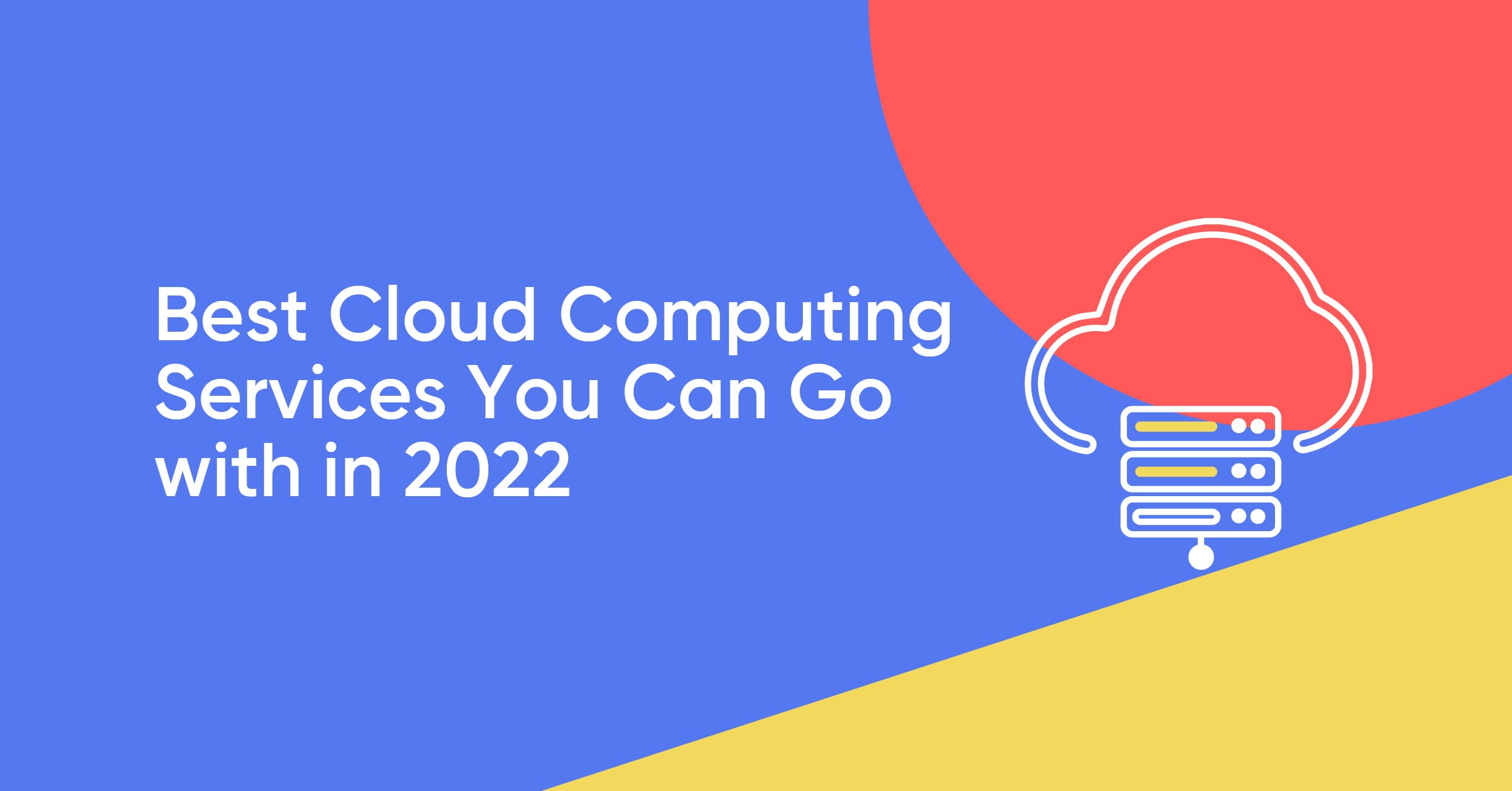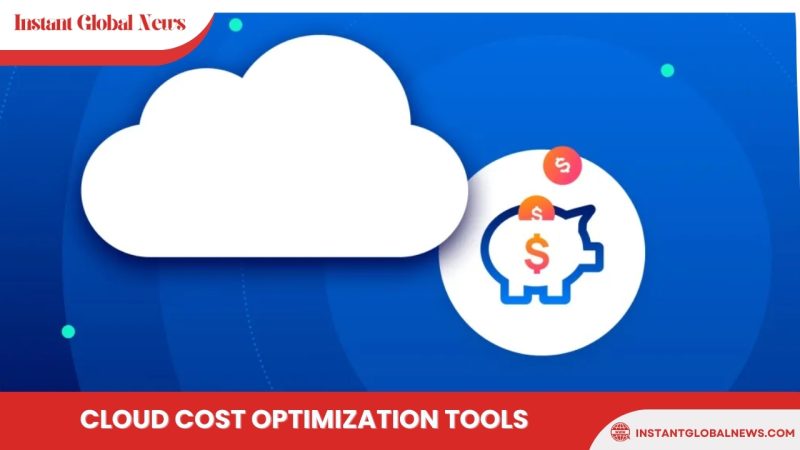
Choosing the right cloud hosting provider can be a daunting task. With so many options available, finding the best one for your business can be a challenge. However, fear not! We have compiled a list of the top 12 cloud computing services for 2023 to help you make an informed decision. In addition to listing these services, we have also included their pros and cons based on user reviews. So, let’s dive in and discover the best cloud computing services for your business!
What is Cloud Computing?
Cloud computing is the practice of storing and accessing data and programs over the internet instead of on local storage devices. It utilizes a network of remote servers to store, manage, and process data, making it accessible from any device with an internet connection. Cloud computing enables individuals and businesses to store and backup their data remotely, collaborate on projects, and access files from anywhere, anytime.
What is a Cloud Computing Service?
Cloud computing services allow users to rent computing resources from anywhere in the world. These services, powered by powerful data centers, offer solutions such as disaster recovery, scalability, mobility, and flexibility. By spreading data across multiple physical devices, cloud computing services ensure redundancy and reliability.
What to Look for When Selecting a Cloud Computing Company?
When choosing a cloud computing company, it’s important to consider your specific needs and requirements. Think about the problems you’re trying to solve and the features that are essential for your business. Consider factors like scalability, security, ease of use, and pricing. It’s also helpful to compare the key features and offerings of different cloud computing services to find the best fit for your company.
Top Cloud Computing Services for 2023
1. AWS (Amazon Web Services) Cloud
AWS Cloud is one of the most widely used cloud computing services. It offers a wide range of solutions, including cloud migration, content delivery, analytics, and web development. With Elastic Compute Cloud, you can create interactive solutions for your website.
Pros:
- Offers a wide range of use cases
- Suitable for various industries
- Easy to set up for beginners
Cons:
- Some data source integrations and infrastructure may have errors
- Complex call patterns in AWS Lambda
- Improvement needed in storing queries
Pricing: Contact the sales team for details.
2. Hostwinds
Hostwinds provides reliable and affordable cloud hosting solutions. With great customer support and easy setup, Hostwinds offers a seamless hosting experience. Their services include hosting, VPS, cloud, and dedicated servers.
Pros:
- Nightly backups for data protection
- 24/7 website monitoring
- Unlimited resources and great speed
Cons:
- Domain transfer can be complex
- Occasional slowdown in load speed
Pricing: Web hosting plans start at $5.24/month.
3. Cloudways
Trusted by over 75,000 businesses, Cloudways offers simplicity, flexibility, and top-notch performance. With partners like Google Cloud, DigitalOcean, AWS, and Cloudflare, Cloudways provides a reliable and scalable cloud hosting platform.
Pros:
- Faster page loads
- 99% uptime
- Intuitive user interface
Cons:
- Limited flexibility in servers
- No control panel
Pricing: Web hosting plans start at $14/month.
4. Google Cloud
Google Cloud offers a user-friendly cloud computing service with a focus on security. It provides smart analytics and database solutions to help businesses gain insights and simplify data analysis.
Pros:
- User-friendly interface
- Strong focus on security
- Smart analytics for better insights
Cons:
- Some may find it expensive
- Tutorials and documentation need improvement
- Dependence on third-party services
Pricing: Contact the sales team for details.
5. Hostinger
Hostinger offers a comprehensive hosting solution, including cloud hosting, VPS hosting, and domain services. It provides great speed, reliability, and excellent customer support.
Pros:
- All-in-one hosting solution
- Free SSL and website builder
- 30-day money-back guarantee
Cons:
- Limited advanced configurations
- Occasional uptime issues
Pricing: Cloud hosting plans start at $2.99/month.
6. Microsoft Azure
Microsoft Azure offers virtual machines, storage accounts, and comprehensive services for cloud computing. It is known for its user-friendly interface and features for web and mobile applications.
Pros:
- Managed SQL database
- Hybrid cloud services
- User-friendly interface
Cons:
- Limited operating system support
- Virtual machine console access drawbacks
- Limited application platforms
Pricing: Contact the sales team for details.
7. IBM Cloud
IBM Cloud focuses on IaaS, SaaS, and PaaS services. It offers hybrid cloud management and migration solutions, making it a flexible option for businesses.
Pros:
- Hybrid cloud management
- Data migration solutions
- Integration with other platforms
Cons:
- Slow queries for some users
- Complexity for beginners
- Customer support needs improvement
Pricing: Pricing varies based on cloud services.
8. Oracle Cloud
Oracle Cloud provides a range of services, from data protection to infrastructure management. It offers backup and disaster recovery solutions and seamless data migration.
Pros:
- Cloud backup and disaster recovery
- Hybrid cloud and multi-cloud support
- User-friendly interface
Cons:
- Customer support could be improved
- Storage capacity and data transfer speed limitations
- Can be expensive
Pricing: Contact the sales team for details.
9. Alibaba Cloud
Alibaba Cloud is a versatile cloud computing service provider. It offers an auto-scaling system, global virtual desktop infrastructure, and data migration solutions.
Pros:
- Auto-scaling system
- Global virtual desktop infrastructure
- Data migration solutions
Cons:
- Cross-integration and elastic search need improvement
- Setup might be challenging for some users
- User interface and documentation need improvement
Pricing: Free trial available. Pricing plans start from $19.99.
10. DigitalOcean
DigitalOcean offers a secure and scalable infrastructure for cloud computing. It excels in storage services and provides personalized support for a smooth experience.
Pros:
- Simple storage service
- Database management
- Personalized support
Cons:
- No public cloud services
- Limited flexibility in memory and processing combinations
- Pricing structure might not be suitable for all businesses
Pricing: Pricing varies based on selected plans.
11. Red Hat Cloud
Red Hat Cloud offers a hybrid cloud experience, combining virtual networks and on-premise centers. It provides automated data tiering and effective storage solutions.
Pros:
- Easy deployment
- Cloud block storage and database storage
- Effective functions like automated data tiering
Cons:
- Not responsive in real-time
- Hybrid cloud system can be complex
- Limited provider support
Pricing: Contact the sales team for details.
12. NetApp
NetApp offers comprehensive cloud computing services, from data protection to infrastructure management. It provides features like data classification and AI-powered data collection.
Pros:
- Support for major hyper-scalers
- Data recovery solutions
- Volume forecasting and allocation
Cons:
- Can be costly
- Steep learning curve
- Limited provider support in specific regions
Pricing: Custom quotes available.
Frequently Asked Questions
Which service is best for cloud computing?
Amazon Web Services (AWS) is widely considered the best cloud platform due to its range of services and virtual machines suitable for various businesses.
Is Azure or AWS better?
Both Microsoft Azure and Amazon Web Services have their strengths. AWS has longevity and a wide range of services, while Azure offers user-friendly storage solutions. Both can be suitable for cloud users depending on their specific needs.
Who is AWS’s biggest competitor?
AWS faces competition from Microsoft Azure, Google Cloud Platform, and IBM Cloud. Comparing features, pricing, and quality of service can help determine the best fit for your business.
Now that you’re armed with information about the top cloud computing services for 2023, you can choose the perfect one for your business needs. Remember to consider your specific requirements, features, pricing, and customer support when making your decision. Happy cloud computing!


